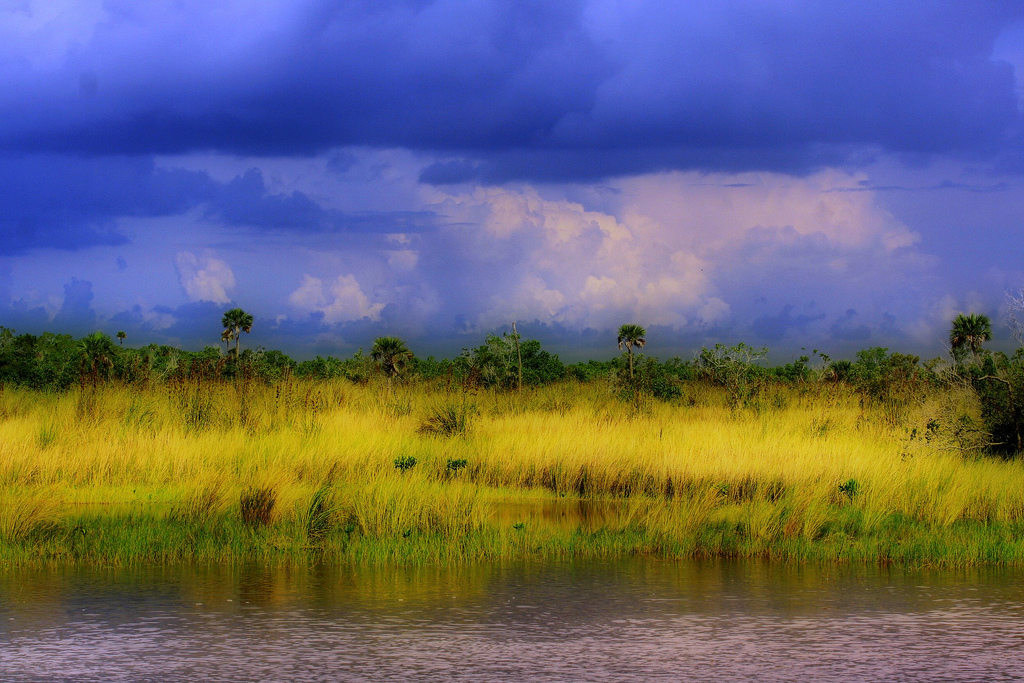Image by Eric Salard, courtesy of Creative Commons
Written by Yoevelyn Rodriguez/Contributing Writer
Even after Congress passed the Comprehensive Everglades Restoration Plan in 2000, a framework and guide to restore, protect and preserve the water resources of central and southern Florida, the state still has no law prohibiting oil drilling in the Everglades.
The fight to save, conserve and restore the site has been going on for decades and activists are aware that there are many companies interested in the resources that the wetlands have to offer.
Kanter Real Estate, LLC is one of these companies.
On July 8, 2015, the Miami-based Kanter organization applied for a permit to drill an oil well in the West Broward section of the Everglades, with help from the Florida Department of Environmental Protection, an agency charged with protecting the environment.
A long string of legislative work aimed at ensuring the survival of the Everglades has been slowly developing since 1991, when the Marjory Stoneman Douglas Everglades Protection Act was enacted in order to encourage the restoration of the system.
The act aims to restore the Everglades and provide water management districts with clear tools for ecosystem restoration.
Since then, at least seven other pieces of legislation granting more protection to the area have passed, including the CERP.
The Restoration plan will cost $10.9 billion and 35 years to implement, according to the National Wildlife Federation.
In Florida, actions taken toward passing laws that would ban fracking in the Everglades –“a form of well stimulation treatment for the exploration and production of oil or natural gas,” as defined on Bill HB 169 – have been unsuccessful.
Gary Rand, professor in the Department of Earth and Environment and director of the ecotoxicology and risk assessment laboratory at the University’s Biscayne Bay Campus, and Piero Gardinali, professor in the Department of Chemistry, have conducted research in support of Natural Resource Damage Assessments.
“[If the Kanter Company drills in the Everglades], then there is a potential for disturbing the system,” said Rand. “There are many aspects to consider.”
Since the 1950s, the Kanter family has owned, roughly, 20,000 acres in the Water Conservation Area 3, according to the paperwork submitted for the permit.
The Everglades is home to a number of endangered species like the Florida Panther, the Florida Bonneted Bat and the Florida Leafwing Butterfly. The swampland is also known for contributing to South Florida’s water supply and flood control.
“People only think about the chemicals that are being put into a system, but there are a number of layers to consider,” said Rand. “Also, aside from drilling, there are aspects related to the management of the operation that could disrupt the environment.”
Rand and Gardinali provided toxicology support during the Deepwater Horizon oil spill, also known as the BP oil spill.
“Remember, there are species in these systems that have never been in contact with people and suddenly you are bringing physical disruption, noise, etc. which disturb habitats,” said Rand.
Aside from the BP oil spill, Rand has been responsible for evaluating environmental and mammalian data for toxicity and risk evaluation posed by chemical wastes in the Love Canal disaster, which became national news when the city of Niagara Falls bought land belonging to the Hooker Chemical Company to build new schools and homes.
The site had been used to store chemical waste by the Hooker Company and was unsuitable for human habitation.
Rand has witnessed the magnitude of damage caused to the environment by waste from oil, gas and chemical production.
“You can tell me there is enough oil for the whole world in there, and I still would proceed with extreme caution when it comes to drilling in the Everglades,” he said.
news@fiusm.com
Additional reporting by Jenny Staletovich, Tribune News Service






Be the first to comment on "The fight to save the Everglades from oil drilling"